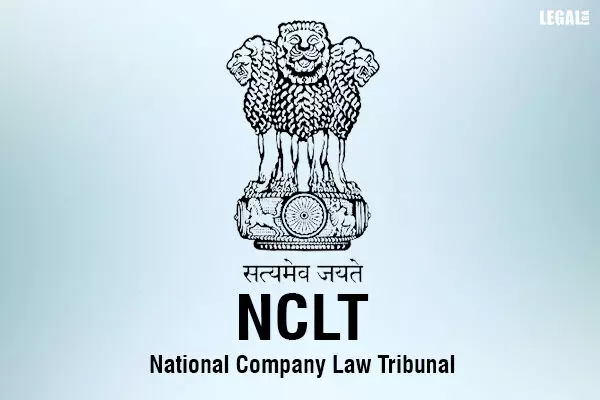- Home
- News
- Articles+
- Aerospace
- Artificial Intelligence
- Agriculture
- Alternate Dispute Resolution
- Arbitration & Mediation
- Banking and Finance
- Bankruptcy
- Book Review
- Bribery & Corruption
- Commercial Litigation
- Competition Law
- Conference Reports
- Consumer Products
- Contract
- Corporate Governance
- Corporate Law
- Covid-19
- Cryptocurrency
- Cybersecurity
- Data Protection
- Defence
- Digital Economy
- E-commerce
- Employment Law
- Energy and Natural Resources
- Entertainment and Sports Law
- Environmental Law
- Environmental, Social, and Governance
- Foreign Direct Investment
- Food and Beverage
- Gaming
- Health Care
- IBC Diaries
- In Focus
- Inclusion & Diversity
- Insurance Law
- Intellectual Property
- International Law
- IP & Tech Era
- Know the Law
- Labour Laws
- Law & Policy and Regulation
- Litigation
- Litigation Funding
- Manufacturing
- Mergers & Acquisitions
- NFTs
- Privacy
- Private Equity
- Project Finance
- Real Estate
- Risk and Compliance
- Student Corner
- Take On Board
- Tax
- Technology Media and Telecom
- Tributes
- Viewpoint
- Zoom In
- Law Firms
- In-House
- Rankings
- E-Magazine
- Legal Era TV
- Events
- Middle East
- Africa
- News
- Articles
- Aerospace
- Artificial Intelligence
- Agriculture
- Alternate Dispute Resolution
- Arbitration & Mediation
- Banking and Finance
- Bankruptcy
- Book Review
- Bribery & Corruption
- Commercial Litigation
- Competition Law
- Conference Reports
- Consumer Products
- Contract
- Corporate Governance
- Corporate Law
- Covid-19
- Cryptocurrency
- Cybersecurity
- Data Protection
- Defence
- Digital Economy
- E-commerce
- Employment Law
- Energy and Natural Resources
- Entertainment and Sports Law
- Environmental Law
- Environmental, Social, and Governance
- Foreign Direct Investment
- Food and Beverage
- Gaming
- Health Care
- IBC Diaries
- In Focus
- Inclusion & Diversity
- Insurance Law
- Intellectual Property
- International Law
- IP & Tech Era
- Know the Law
- Labour Laws
- Law & Policy and Regulation
- Litigation
- Litigation Funding
- Manufacturing
- Mergers & Acquisitions
- NFTs
- Privacy
- Private Equity
- Project Finance
- Real Estate
- Risk and Compliance
- Student Corner
- Take On Board
- Tax
- Technology Media and Telecom
- Tributes
- Viewpoint
- Zoom In
- Law Firms
- In-House
- Rankings
- E-Magazine
- Legal Era TV
- Events
- Middle East
- Africa
NCLT Mumbai Dismisses Petitions Related To Family Dispute Disguised As Corporate Dispute

NCLT Mumbai Dismisses Petitions Related To Family Dispute Disguised As Corporate Dispute
The National Company Law Tribunal (NCLT) Mumbai bench of Prabhat Kumar (Technical Member) and V.G. Bisht (Judicial Member) has emphasized the importance of distinguishing between genuine corporate disputes and attempts to exploit company law for personal gain. The tribunal dismissed two company petitions filed under Sections 241 and 242 of the Companies Act, 2013, alleging acts of oppression and mismanagement by certain Directors and challenging the legality of various notices, resolutions, and share transfers. It observed that the petitions primarily involved familial property disputes rather than genuine instances of corporate malpractice, making them unsuitable for its adjudication.
The petitioner, who has been involved in the company's business activities since its inception alongside her late husband, raised several grievances following disputes within the family. These disputes, dating back to 2013 and culminating in a family settlement in 2015, intensified following her husband's passing in 2016. The petitioner questioned the validity of her late husband's will and accused Respondent Nos. 2 and 3, her son and daughter-in-law, of coercive behaviour and mismanagement.
Among her allegations were unauthorized share transfers, hindrance of access to company documents and assets, harassment, physical assault, and unlawful removal from Directorship. However, the respondent countered these claims by asserting that the petitions were not filed under the appropriate section of the Companies Act. The respondent highlighted a Memorandum of Understanding (MOU) executed in 2018, wherein the petitioner acknowledged the validity of her late husband's will. They also pointed out that the petitioner's challenge to her proposed removal as Director became irrelevant when relevant meetings were cancelled upon her request.
Moreover, the respondent accused the petitioner of obstructing the company's operations and causing financial losses, arguing that her allegations did not meet the standard for oppression and mismanagement under the law.
The tribunal emphasized the underlying family dispute at the heart of the petitions. The issues raised, such as challenging a will and contesting property ownership, fell outside the purview of corporate governance matters typically addressed by the NCLT. Secondly, the NCLT found no evidence of fraudulent activity by the respondents. Additionally, the tribunal noted the withdrawal of the challenged director removal resolution and the legitimacy of selling company properties to settle debts. The presence of counter-accusations and missing documents further complicated the case, leading the NCLT to conclude that the petitions did not warrant its consideration.
However, the tribunal clarified that the deceased father's shares owned by Respondent No. 2 would be subject to the decision in a title suit before the Bombay High Court. The tribunal dismissed the petitions, framing the dispute as a family dispute over the share of properties owned by the respondent companies, and therefore not maintainable before it.



